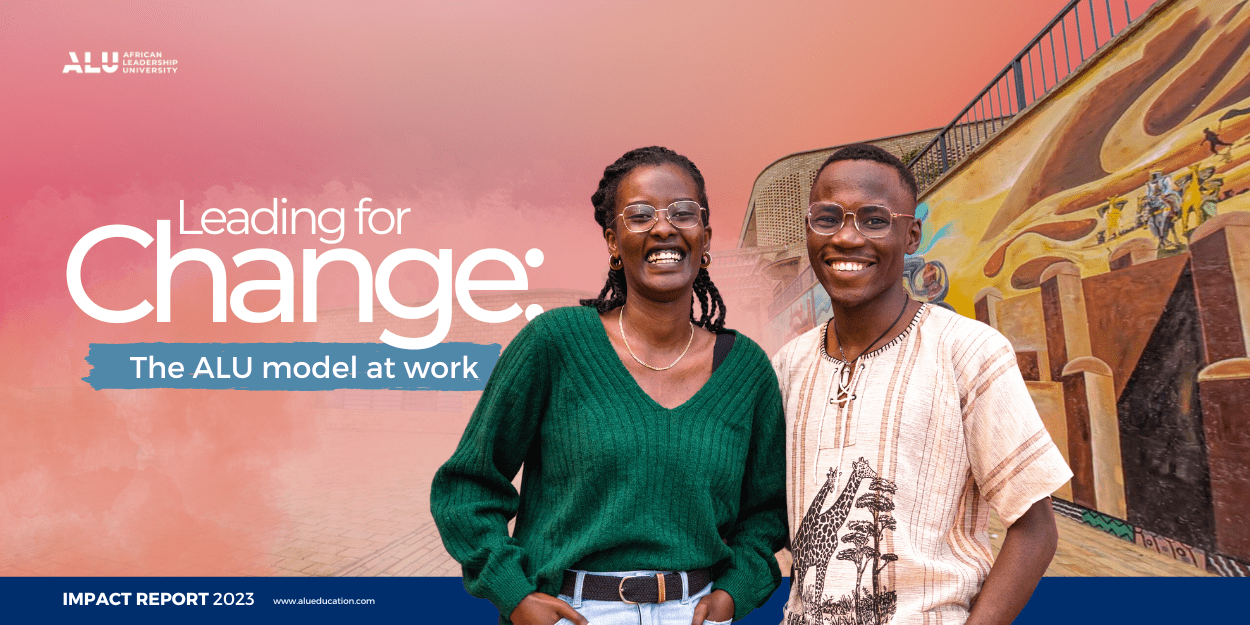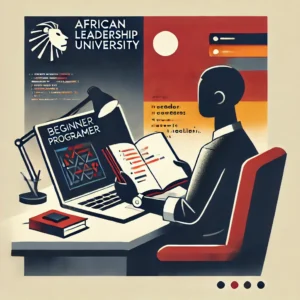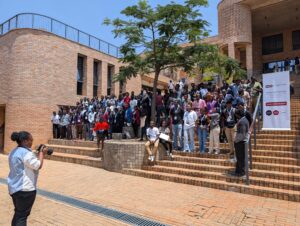African Leadership University launched the 2025 Africa Workforce Readiness Survey – the first pan-African survey providing insights into school leavers and employers’ perspectives on higher education, careers, and the economy, at the recent ReImagine Education (RIE) Nairobi 2025 conference.

- 44% of school leavers surveyed plan on staying in Africa after completing education, with 64% of employers considering the ‘brain drain’ a major concern for the continent’s future.
- 51% of school leavers say the opportunity to gain work experience during their studies is a main priority when choosing which university or college to apply to.
- 68% of employers in Africa agree that higher education institutions are preparing graduates well for the job market.
- 63% of employers in Africa think higher education institutions should focus more on developing students’ leadership skills, to better prepare them for the job market, followed by fostering their technical skills (47%).
According to the new ALU 2025 Africa Workforce Readiness Survey, published by African Leadership University, 88% of school leavers in Africa plan to pursue higher education in the future, demonstrating its desirability among today’s youth. Of those, however, more than one-third (37%) intend to study outside of Africa, with school leavers from Ghana (60%), Nigeria (45%), and Kenya (44%) expressing the greatest desire to enroll abroad. Equally alarming is that less than half (44%) of all school leavers surveyed plan on staying in Africa after completing their education, with those from Côte d’Ivoire (19%), Ghana (27%), and Nigeria (28%) the most likely to leave.
This supports employers’ concerns about the ‘brain drain’ (the migration of talent to countries outside the continent), almost two-thirds (64%) of whom agree that it represents a significant issue for Africa’s future.
These new findings are among those published today by African Leadership University (ALU), a higher education institution dedicated to equipping graduates with the skills and vision needed to succeed as ethical entrepreneurs. They were gathered through surveys, conducted by Economic Policy Group, of more nearly 8,000 employers and school leavers across nine countries in Africa (Côte d’Ivoire, Ethiopia, Ghana, Kenya, Nigeria, Rwanda, South Africa, Uganda, and Zimbabwe). The students surveyed were aged 15-22 and in their final year of study, while the employers were engaged in a range of Small or Medium Enterprises (SMEs), large enterprises, and multinational companies, and held a mixture of entry level, middle management, and senior leadership roles. This first-of-its-kind research covers school leavers and employers’ views across Africa of higher education, skills and careers, the future economy, and the workplace in the age of artificial intelligence (AI).
An overwhelming majority (71%) of employers said that they are more likely to hire a graduate with practical work experience. At the same time, they identified problem-solving skills (22%), a leadership mindset (21%), and initiative and self-direction (20%) as the skills that are most lacking among the recent graduates who have joined their organization. Conversely, communication (37%), innovation and creativity (29%), and analytical thinking (27%) are the most sought-after skills among employers. Flexibility and adaptability were also ranked as most desirable in Zimbabwe (36%) and Côte d’Ivoire (33%).
68% of employers somewhat or strongly agree that higher education institutions are preparing graduates well for future employment. However, almost one-third (32%) are unsure or disagree that they do. Employers in Côte d’Ivoire are by far the most skeptical of those surveyed, with just 26% believing that higher education adequately prepares graduates.
Just 15% of employers surveyed rated the employability skills of the recent graduates who have joined their organizations as excellent. Concerning what higher education institutions should do to better prepare graduates for the job market, the majority of employers (63%) think they should focus on developing students’ leadership skills. 47% also believe that they should focus on fostering students’ technical skills and 45% that they should forge partnerships with businesses.
School leavers’ primary motivations for pursuing higher education, according to the survey, are gaining the skills needed to pursue their passion (26%) and contributing to their country’s development by utilizing their skills (26%). Over half (51%) of those planning to do so said the ability to gain work experience during their studies is their ultimate priority when choosing which university or college to apply to, with this being particularly important among school leavers in Côte d’Ivoire (82%), Uganda (68%), Nigeria (65%), and Ghana (62%).
In relation to their future careers, engineering (14%), banking and financial services (14%), technology and software (13%), and the government and public sector (11%) were the four most popular sectors in which school leavers said that they would most like to work.
Veda Sunassee, CEO of ALU, said:
“I am proud to present the ALU 2025 Africa Workforce Readiness Survey, the first of its kind to explore the aspirations of young Africans and the expectations of employers for graduates.
“This is a pivotal moment for Africa. This survey clearly shows that to unlock the immense potential of young Africans, higher education must focus on leadership, problem-solving, and building strong links with the business world. By bridging the gap between education and workforce demands, we can empower Africa’s next generation of leaders to drive meaningful change and shape the continent’s future.”
Economic outlook
65% of employers and 63% of school leavers agree that they feel optimistic about the future of Africa’s economy. 64% of employers are also confident that the next generation of graduates can help grow their business. School leavers, however, shared their anxieties about entering the job market. 51% said their greatest concern with finding employment after completing education is that there simply won’t be enough jobs – a concern ranking highest in Uganda (66%), Ethiopia (65%), and South Africa (62%). The other top concerns included lacking adequate work experience (38%) and facing an unfavorable economic climate (36%).
Artificial intelligence
Both school leavers and employers emphasized that AI could bring positive prospects. More than half of school leavers surveyed (51%) agree strongly or somewhat that AI is an opportunity for them. Similarly, 54% of employers surveyed agree that AI is an opportunity for their business, and plan to integrate AI into their business in the future. Yet the survey also reveals concerns over AI’s impact, with more than half of employers fearing that it will lead to workers needing to reskill many times during their career (57%), and to fewer employment opportunities (51%). This uncertainty is reflected in the finding that 60% of employers agree or are uncertain that AI also presents risks to their business.
Key recommendations for higher education institutions
Based on the survey’s findings, ALU has put forward the following core recommendations for higher education institutions:
- Respond to employer needs: Universities should prioritize teaching soft skills and technical abilities.
- Align curriculum with career aspirations: Universities should expand academic offerings and career-focused experiences.
- Enhance work-based learning opportunities: Employers and institutions should partner to offer more opportunities for hands-on work experience.
- Foster public-private collaboration: Universities should work with public and private sectors to fund new programs and infrastructure.
- Assess progress: Universities must monitor their progress in closing the higher education skills gap.










